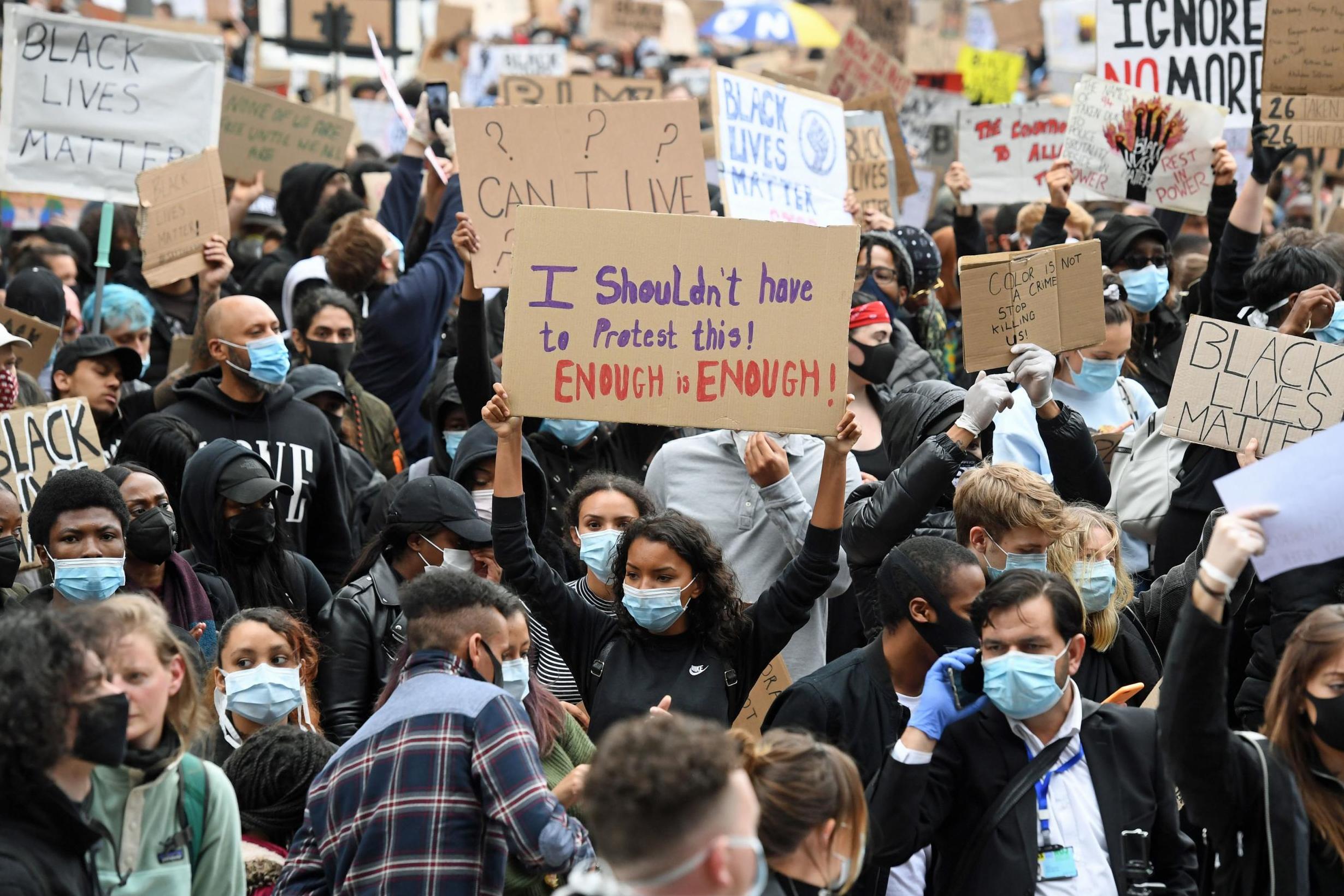A massive societal transformation is required for Black Lives to truly Matter
The sources of these inequalities far exceed the institutions of healthcare and policing, writes Anne Pollock

When so many in the US and in the UK first became transfixed by the dangers of the novel coronavirus, there was a strong narrative that we were “all in this together” as we were implored to “flatten the curve”. And yet, with each passing week, the racially and ethnically unequal pattern of who is most likely to be sickened and killed by Covid-19 has become increasingly visible.
If the looming curve looked mathematical and indiscriminate, that obscured the very different lived experiences that structure epidemiological risk. More recently, high profile murders have sparked an awakening from Covid’s numbing numbers: the vigilante killing of black jogger Ahmaud Arbery, the police killing of Breonna Taylor in her own home, and especially the police murder of George Floyd caught on video footage that has been widely shared. These murders and the righteous protests that they have sparked reminds us that, in our racist societies, unequal vulnerability is not new.
These crises of Covid-19 and of police brutality can call our attention to the factors that contribute to health inequality, such as systems of healthcare and of policing, in a context of segregated neighbourhoods and unequal urban infrastructures. They also point toward the depth of the societal transformation that would be required for Black Lives to truly matter.
Healthcare systems are supposed to help to save lives, and they do, in this crisis and in general. And yet healthcare systems are also sources of intensification of inequality. In the US, this is particularly stark with tremendous barriers to care: many lack health insurance, especially as unemployment spikes, or people worry that costs beyond what health insurance would cover would be too great.
But even in the UK, the healthcare system plays a role in contributing to embodied inequality.
Members of minoritised groups are overrepresented in the healthcare jobs that put them at risk, and especially early on in the crisis, were not provided the personal protective equipment that would have made their jobs safer. The healthcare system is meant to protect all, but we can see in this crisis that it distributed risk – to workers and then to their families and communities. And in both contexts, the distrust that many black patients have of the healthcare system is well-founded, as their suffering is less likely to taken seriously by health care providers and addressed appropriately.
Police are supposed to “protect and serve”. And yet their role in perpetuating inequality is profound. The purported protection of property and social order may seem colour-blind, but it instead enacts racialisation. On both sides of the Atlantic, police enforcement of lockdown laws has fallen much more heavily on minoritised communities than on others, and this is in keeping with the usual state of affairs. Police harassment plays a role in exacerbating the broader stressors of living in a racist society. The murder of George Floyd is a particularly blatant instance of a far broader phenomenon: policing becomes a source of bodily harm, rather than a protection from it.
The deaths from Covid-19 and the recent murders are acute instances of chronic health and social inequalities. And the sources of these inequalities far exceed the institutions of healthcare and policing, extending to the broader social, political and economic structures that shape unequal lived experiences. We can and should gather more data about the burdens that the novel coronavirus, the lockdown, and police and vigilante violence have imposed on members of communities of colour, but data is not enough.
We already know that inequality is there, and is sickening, and is killing. We need the political will to work for justice.
Anne Pollock is a professor of global health and social medicine at King’s College London. She is currently completing her third book, Sickening: Racism, Health Disparities, and Biopolitics in the 21st Century
Join our commenting forum
Join thought-provoking conversations, follow other Independent readers and see their replies
Comments